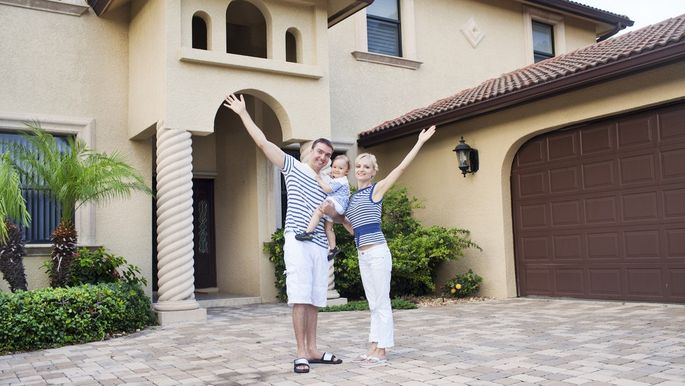An official recession, a deadly pandemic, and a national reckoning on racism aren’t blunting the housing market’s rebound.
As the summer home-buying season gets underway, median home prices are surging. They shot up 4.3% year over year as the number of homes for sale continued to dry up in the week ending June 6, according to a recent realtor.com® report. That’s correct: Prices are going up despite this week’s announcement that the U.S. officially entered a recession in February.
While that’s below the typical 5% to 6% annual price appreciation this time of year, it’s nearly back to what it was before the coronavirus pandemic. Median prices were rising 4.5% in the first two weeks of March before the COVID-19 lockdowns began. Nationally, the median home list price was $330,000 in May, according to the most recent realtor.com data.
“The big surprise of the housing market is that prices have remained quite resilient,” says realtor.com Senior Economist George Ratiu. He doesn’t expect prices to drop over the next few months. “The summer housing market will be better than expected, but far off the normal pace.”
The culprit for the increasing prices: a lack of homes for sale and a rush of buyers. The total number of home listings on realtor.com was down 25% in the first week in June compared with the previous year—when there was also a housing shortage. In the first two weeks of March, listings had fallen 16% annually.
“The number of listings is shrinking at a faster pace, and it’s causing prices to go up,” says Ratiu. That’s the exact opposite of the Great Recession, where a housing bust tanked the economy and home prices were slashed. “The [housing] market isn’t in the dire straits that it was the last time around.”
Meanwhile, buyers who still have jobs have been descending on the market en masse, enticed by record-low mortgage interest rates. Rates fell below 3%, to hit an all-time low of 2.94% for 30-year fixed-rate loans on Thursday, according to Mortgage News Daily.
The market typically begins warming up in the spring and then reaches a fever pitch by the summer. Families often prefer to move in the summer when the kids are on break from school. That means buyers seeking an affordably priced home this summer should expect multiple officers and bidding wars, which drive prices up even further, instead of deals.
“For most people, it will be a competitive buying market,” says Lawrence Yun, chief economist of the National Association of Realtors®. “For lower-priced and medium-priced homes, multiple offers will be fairly common. On the luxury end, some price reduction will be required because there’s plentiful inventory.”
For the past three weeks, the number of buyers applying for purchase mortgages rose year over year, according to the Mortgage Bankers Association. Applications shot up 12.7% annually in the week ending June 5. They were also up 15% from the previous week.
The numbers are based on a weekly survey from the MBA that spans more than 75% of U.S. residential mortgage applications. The purchase loans did not include mortgage refinances for those who already own homes.
“Buyers, particularly those who still have jobs, are trying to take advantage of historically low mortgage rates,” says Ratiu. “Just as importantly, we have to realize that a lot of people were planning to move and simply put those plans on hold.” Now those folks are returning to the market—joining those who were planning to buy in the summer.
That doesn’t mean the housing market is all roses. Unemployment is the highest it’s been since the Great Depression, officially at 14.4% in May, although economists say it is likely much higher. An additional 1.54 million Americans applied for unemployment in the week ending June 6, according to the U.S. Department of Labor.
Many folks can no longer afford to purchase a home or are waiting until the economy improves. There are others who can no longer qualify for a mortgage as lenders have tightened their credit standards in the wake of the economic uncertainty brought on by the novel coronavirus.
“There are some headwinds,” says Ratiu. “It’s harder for buyers, especially younger first-time buyers, to get a mortgage.”
Source: realtor.com ~ ~ Image: realtor.com

